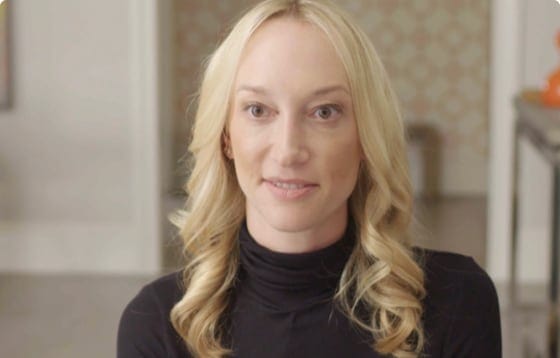Do You Speak BRCA?
Learn more about the 23andMe BRCA1/BRCA2 (Selected Variants) Genetic Health Risk report here.
Have a personal or family history of cancer? Talk to a healthcare professional about your genetic testing options, which could include more comprehensive testing.
Let’s begin at the very beginning.
BRCA stands for BReast CAncer gene. You can pronounce it “brah-kuh” or you can say “B” “R” “C” “A”. When we talk about BRCA1 and BRCA2, we are speaking the language of human genetics. We are speaking BRCA.
You can, too.
Want to learn to speak BRCA? Here are some terms to know.
Speaking BRCA won’t require you to master any verb conjugations, but there are several important genetic terms you may want to know. Here are five of the most important:
BRCA Basics
BRCA1 and BRCA2 are genes that have been found to impact a person’s chances of developing certain cancers, including breast, ovarian, prostate and pancreatic cancer.
What It Means:
The genes are called BRCA because the link between these genes and breast cancer was discovered first. The genes themselves do not cause cancer. They actually help prevent (emphasis on the word prevent) it by repairing DNA breaks that can lead to cancer. This is why we refer to them as tumor suppressor genes (emphasis on the words tumor suppressor genes).
Sometimes, changes in the BRCA genes occur that prevent them from functioning properly. These changes are called genetic variants or mutations. Variants in the BRCA1 and BRCA2 genes can be passed down through families, increasing the risk of developing certain cancers. This is what was referenced in our glossary as hereditary risk (emphasis on the words hereditary risk).
Why It Matters:
Knowledge is empowerment. Many people with a BRCA variant, both females and males, are unaware of their risk and what they can do about it. While it is true that having certain BRCA variants can increase a person’s risk of developing cancer, most cases of breast, ovarian, prostate and other cancers aren’t caused by inherited BRCA variants. And not every individual who inherits a BRCA variant will develop cancer.
The BRCA Story:
Three Decades of Discovery.1
There’s a reason you may have never heard of BRCA1 and BRCA2. Prior to their identification by researchers ~30 years ago, nobody had (emphasis on the words nobody had). Here are a few of the key milestones.
The First and Only FDA-Authorized,
Direct-To-Consumer BRCA Test*Considerations and Limitations for the Genetic Health Risk Report for BRCA1/BRCA2 (Selected Variants)
23andMe offers a genetic test for 44 variants in the BRCA1 and BRCA2 genes to its Health plus Ancestry Service customers. If you have one of these variants, you have an increased risk of developing certain cancers. But there are more than 4,000 other variants in the BRCA1 and BRCA2 genes that are known to increase cancer risk. These other variants are not included in 23andMe's report.
Let’s be clear.
(Let’s be frank, too.)
23andMe’s BRCA1/BRCA2 (Selected Variants) Genetic Health Risk report is many things — direct-to-consumer, FDA-authorized — but there are many things it isn’t. Why emphasize what we aren’t? Because here’s what we are — committed to transparency. We are absolutely dedicated to guiding you through the landscape of BRCA, regardless of whether or not you choose to access this report through 23andMe’s Health plus Ancestry Service. For customers who choose to view their results, we will provide you with information about important considerations regarding how to read and use the report.
The BRCA1/BRCA2 (Selected Variants) Genetic Health Risk report is not a comprehensive cancer screening test.
More than 4,000 variants in the BRCA1 and BRCA2 genes are known to increase cancer risk.
Our Genetic Health Risk report focuses on only 44 out of the more than 4,000 risk variants.
Specific BRCA genetic variants are more common in certain populations.
- About 1 in 40 people of Ashkenazi descent has one of three specific variants included in our report (called c.68_69del, c.5266dup, and c.5946del).
- Ashkenazi Jews trace their roots to Jewish people who settled in Central and Eastern Europe during the Middle Ages.
- Whereas ~1 in 200 people in the general population has a BRCA variant…
- ...though usually not one of the variants in our report.
Most cases of breast cancer, ovarian cancer, prostate cancer and pancreatic cancer are not caused by inherited BRCA variants.
Other factors also play an important role.
Known variants in other genes that affect cancer risk
Unknown genetic factors that may affect cancer risk
Other factors such as lifestyle, environment and family history
The experiences of our customers are a true testament to the value of understanding your genetics.*Considerations and Limitations for the Genetic Health Risk Report for BRCA1/BRCA2 (Selected Variants)

Watch Hilary’s story
Nobody in Hilary’s family had a history of breast or ovarian cancer. She’s grateful for 23andMe because she’s confident no doctor would have asked her to consider genetic testing.

Watch Jill’s story
Jill’s 23andMe test results allowed her to take information within her genetic code and keep herself healthy.
Helpful BRCA resources
(We have them.)
At 23andMe, we are committed to helping you understand what a BRCA result means and describing important limitations of the report. There are also many trusted advocacy organizations who share our commitment to the BRCA community and provide a wide array of educational and support services. We encourage you to reach out to these organizations to deepen your knowledge and empower yourself.
Still have questions?
You’re not the only one.
Cancer is a complex disease: The experts still have questions. Here are just a few of the questions “non-experts” have been asking about 23andMe’s BRCA1/BRCA2 (Selected Variants) Genetic Health Risk report. We encourage you to talk with a healthcare professional, such as a genetic counselor, to get the answers you need.
Yes. Males with a BRCA1 or BRCA2 variant have an increased risk of developing male breast cancer, and may have a higher risk for prostate cancer and pancreatic cancer. For example, studies suggest that 7-8% of males with a BRCA2 variant, and 1-2% with a BRCA1 variant, develop male breast cancer during their lifetime, compared to about 0.1% in the general population.3
No. Many people will receive a test report indicating that no genetic variants were detected. This result does not give you much new information about your cancer risk. You could still have a variant not included in this test. In addition, most cases of cancer are not caused by inherited variants, so other factors also influence cancer risk, including lifestyle, environment and family history. This test does not diagnose cancer or any other health condition and is not a substitute for visits to a healthcare professional for recommended screenings.
Our BRCA test for the variants we detect meets FDA requirements for analytical, clinical and scientific validity. As with our other FDA-reviewed reports, each variant we report demonstrated greater than 99 percent agreement with an accepted comparison method. It also showed greater than 99 percent reproducibility and repeatability. Keep in mind that it is important to confirm results with an independent genetic test prescribed by your own healthcare provider before taking any medical action.
Learn more.- Got more questions?
- Get more answers.
You did it.
If you have read this far, you have achieved a basic level of BRCA proficiency. We knew you could do it! The question is, what will you do with it? Talk to a healthcare professional? Share what you've learned with a friend or family member? We encourage you to do both.
Live in the know. SMLearn more about our Health plus Ancestry Service.
*The 23andMe PGS test uses qualitative genotyping to detect select clinically relevant variants in the genomic DNA of adults from saliva for the purpose of reporting and interpreting genetic health risks, including the 23andMe PGS Genetic Health Risk Report for BRCA1/BRCA2 (Selected Variants). Your ethnicity may affect the relevance of each report and how your genetic health risk results are interpreted. The test is not intended to diagnose any disease and does not describe a person's overall risk of developing any type of cancer. It is not intended to tell you anything about your current state of health, or to be used to make medical decisions, including whether or not you should take a medication, how much of a medication you should take, or determine any treatments. Warnings & Limitations: The 23andMe PGS Genetic Health Risk Report for BRCA1/BRCA2 (Selected Variants) is indicated for reporting of 44 variants in the BRCA1 and BRCA2 genes. The report describes if a person's genetic result is associated with an increased risk of developing breast cancer and ovarian cancer and may be associated with an increased risk for prostate cancer, pancreatic cancer, and potentially other cancers. The variants included in this report do not represent the majority of the BRCA1/BRCA2 variants people of most ethnicities. This report does not include variants in other genes linked to hereditary cancers and the absence of variants included in this report does not rule out the presence of other genetic variants that may impact cancer risk. This report is for over-the-counter use by adults over the age of 18, and provides genetic information to inform discussions with a healthcare professional. The PGS test is not a substitute for visits to a healthcare professional for recommended screenings or appropriate follow-up. Results should be confirmed by an independent genetic test prescribed by your own healthcare provider before taking any medical action.
